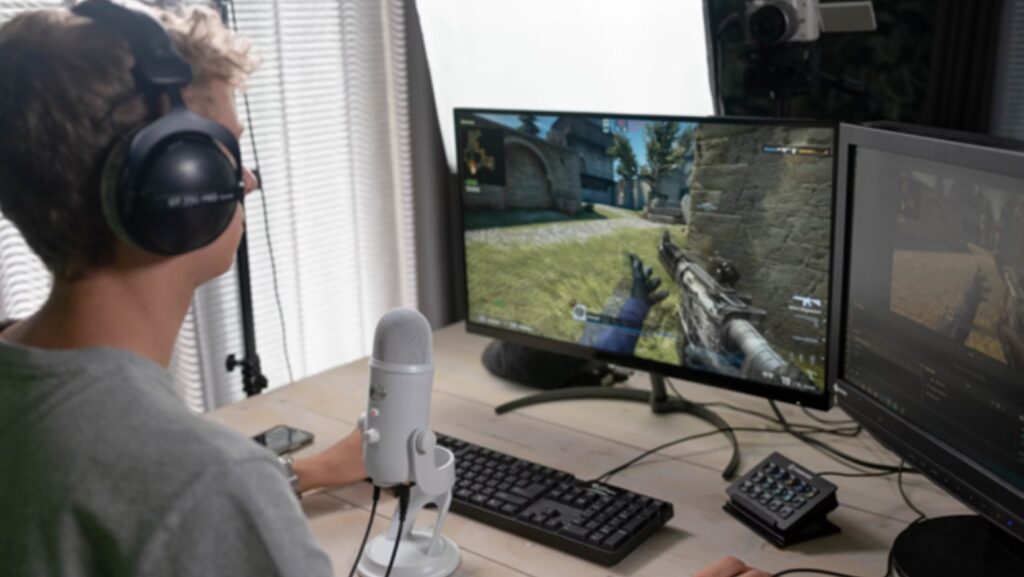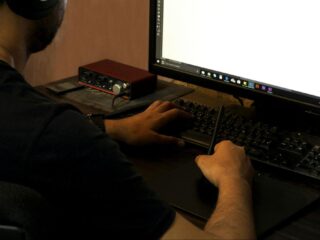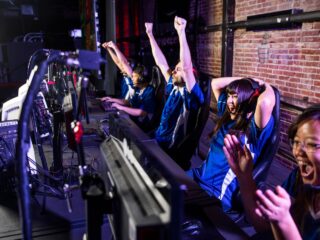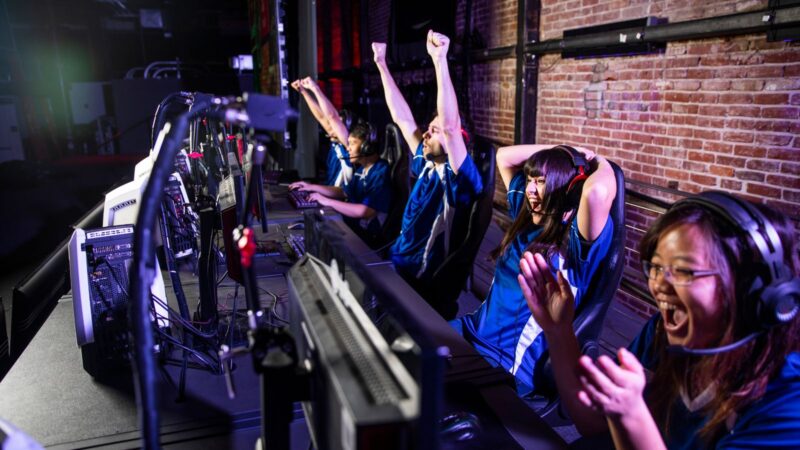

Are you ready to elevate your gameplay and become a force to be reckoned with in the world of multiplayer games? Mastering multiplayer games isn’t just about quick reflexes; it’s about developing a strategic mindset that allows you to outmaneuver your opponents and work seamlessly with your team. Strategic thinking and effective communication are the bedrock of success in any competitive multiplayer game. To enhance your performance while also protecting your identity, consider using hacks responsibly and safeguard your gaming identity with Battlelog’s cutting-edge HWID spoofer technology, which helps maintain your anonymity in the gaming world.
Imagine being in perfect sync with your team, predicting enemy moves, and employing advanced tactics to secure victory. It’s not just about knowing the game mechanics; it’s about understanding how to leverage them to your advantage. Learning from top players and continuously honing your skills will put you ahead of the competition.
In this guide, you’ll find essential and advanced strategies that can transform you into a better player. Whether you’re playing “Counter-Strike,” “Overwatch,” or any other team-based game, these tips will help you dominate the battlefield.
Fundamentals of Strategy in Multiplayer Games
Mastering multiplayer games requires a firm grip on key elements. You need to understand game mechanics, assess opponents’ skill levels, and excel in teamwork and communication for peak performance.
Understanding Game Mechanics
Understanding game mechanics gives you a solid foundation. Each game has unique rules, controls, and tactics. Spend time learning these details by playing tutorials and single-player modes.
Use online resources and forums to stay updated on patches and updates. Pay attention to maps and how character abilities can be used strategically.
Break down complex systems into bite-sized pieces. Focus on one mechanic at a time, like map control or weapon mastery, and get comfortable with it. Mastery comes from consistent practice and attention to detail.
Assessing Opponents’ Skill Levels
Knowing the skill level of your opponents helps you plan better. Watch their movements and decision-making patterns. Are they aggressive or defensive? Do they often use specific tactics?
Observe and adapt your strategies in real-time. If they always choose high ground, find ways to counter it. Use knowledge of skill tiers to match your playstyle accordingly.

Be mindful of their weaknesses and strengths. Are they good at shooting but lack communication skills? Use this information to your advantage.
The Role of Teamwork and Communication
Teamwork and communication are crucial in multiplayer games. A good team is more than a collection of skilled players; you must work together seamlessly.
Use voice chat or quick messaging to coordinate moves. Share information about enemy positions and resources. Good communication turns chaotic battles into controlled victories.
Everyone on the team should know their role. Are you a sniper, a medic, or playing support? Align your efforts with the team’s goals. Keep an eye on your teammates’ actions and complement them with your own.
Developing strong teamwork skills involves practice and feedback. Regularly discuss what works and what doesn’t, making adjustments as needed. This constant improvement makes your team invincible.
Developing Advanced Tactical Play
Mastering advanced tactical play in multiplayer games involves sharpening several key skills. You need to manage your position on the map, handle in-game resources wisely, and understand the timing and pacing of the game to gain an edge.
Positional Awareness and Map Control
Knowing where you are on the map at all times is crucial. Each map has strategic locations that give you an advantage. For example, high ground often provides better sightlines and cover.
Always keep track of your opponents’ positions, too. Use the mini-map and sound cues to detect enemies. Stay alert and communicate with your team. Calling out enemy locations helps everyone move more effectively and maintain control over critical areas.
Resource Management and Economy
Successful players excel in managing in-game resources. This varies between games but can include health packs, ammunition, or special abilities. Prioritize the resources you need most based on the current situation.
Never waste valuable resources. Use them at the right moment to turn the tide. Watch your economy closely in games where resources translate into vital equipment or upgrades. Spend wisely and save when necessary to ensure you always have an advantage.
Timing and Momentum in Gameplay
Timing your actions precisely can make a huge difference. Consider the best moments to attack or retreat. For instance, attacking when your opponent is low on health or resources can be highly effective.
Maintain momentum. Winning streaks often boost your team’s morale and pressure opponents. Use this momentum to control the game pace. Avoid hasty decisions that could lose your lead. Plan your moves and strike at opportune moments to maximize efficiency and minimize risks.
Psychological Elements of Competitive Play
In competitive multiplayer gaming, mental strength is as crucial as technical skills. Keeping your emotions in check and adapting rapidly to changing game dynamics can make the difference between winning and losing.
Managing Tilt and Emotional Control
Tilt happens when you get frustrated, which leads to poor performance. Staying calm under pressure is key. Practice mindfulness to keep your focus sharp. Take short breaks to reset your mind when things get tough.

Use breathing exercises to calm down. In high-stress moments, deep breaths help you regain control. Recognize when you’re tilting and address it immediately to prevent a downward spiral. Good emotional control improves your decision-making and keeps you in the game longer.
The Importance of Adaptation and Flexibility
Games often don’t go as planned. Being able to adapt and stay flexible can turn the tide. Learn from your mistakes quickly and apply new strategies on the fly. Watch your opponents and change your tactics to counteract them.
Review your matches to identify areas where you can improve. Doing this helps you to stay ahead and ready for different scenarios. Being adaptable means you’re not just reacting but strategizing for future play. This mindset is crucial for sustained success.
Optimizing Performance and Training Routines
Efficiency and practice are key in multiplayer games. You need to have both a streamlined system and a well-curated training regimen to stay ahead of your opponents.
Structured Practice and Skill Development
To excel, incorporate a regimented practice schedule. Practice shouldn’t be random. Set clear goals for each session, such as improving aim or mastering a specific tactic.
Rotate through different maps and modes to gain a comprehensive understanding. Use bots and custom matches to try out new strategies without the pressure of actual competition.
Analyze your gameplay regularly to identify weak spots. Focus on one or two areas per session. This way, you’ll see consistent improvement.
Analyzing Gameplay and Learning from Mistakes
Track your performance. Record your games and watch the replays. Look for common mistakes, such as poor positioning or bad decision-making.
Identify patterns in your losses. Are you always getting ambushed in a particular spot? Do you frequently overextend? Correct these mistakes in future games by actively thinking about them while you play.
Discuss your gameplay with teammates or friends. They can offer perspectives you may not see. Regular feedback helps you make necessary adjustments quickly.
Training this way ensures you continuously refine your skills and strategy.











